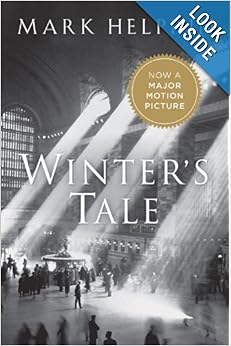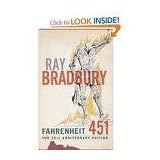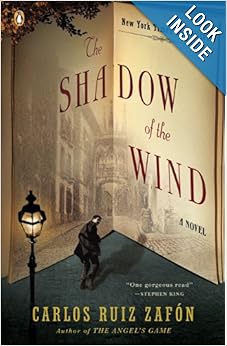These are the books that I read to finish out December. (In case you are keeping track, they will be counted with 2014's reading list and best-of-the-year list).

The Buddha in the Attic by Julie Otsuka
The Story:
The story follows the lives of Japanese mail-order brides spanning the time from their voyage to America to their marriages, children, and culminating in the entrance of the United States into World War II and the removal of the Japanese to internment camps.
The Review:
Otsuka begins this novella with an immediately noticeable and fascinating approach to the narrative voice -- she actually uses "we" as the narrator. So rather than a story that focuses on an individual Japanese woman who goes through these experiences, our narrator(s) is a group of women. For example, the opening paragraph begins, "On the boat we were mostly virgins. We had long black hair and flat wide feet and we were not very tall. Some of us had eaten nothing but rice gruel as young girls and had slightly bowed legs, and some of us were only fourteen years old and were still young girls ourselves." I found the use of "we" to be really fascinating because it had all kinds of effects on how the story was told and on me as the reader. In addition, as I got to the chapter that catalogs the differences between the Japanese and the Americans, I realized that the use of "we" highlights another important cultural difference without it being part of the list. The Japanese value the collective while Americans value the individual. Because the entire story is told from the collective perspective, it really highlights how they view themselves as the same as each other and as part of the group.
This is technically a novella, so it is short enough that there doesn't feel like there is a lot of depth to the story, but it did a lot in very few pages. It had lasting images, it created emotion, it made me care about what was happening, even though I didn't have one specific person to care about.
Absolutely recommend it.

Winter's Tale by Mark Helprin
The Story:
This is a complicated multi-threaded, multi-time (and not chronological) narrative about love and justice. It follows, predominantly, Peter Lake's adventures against bad guys (a band of thieves called Short Tails), with love, and with a white horse in a New York City that is lost in winter.
The Review:
This novel is beautifully poetic and philosophical. It's a story about the power of love (sort of) but it is also just a love song to New York City. The many threads of different characters' stories combine beautifully. It drags a bit -- because it is 800 pages -- but it is a good fantasy-type adventure, it is thoughtful, and just beautifully written.
That review seems woefully inadequate, but I'm having a really hard time summing up the story. The difficulty notwithstanding, I highly recommend it.

Fahrenheit 451 by Ray Bradbury
The Story:
In a dystopian America, the fireman's job is to burn books. Montag, a long-time fireman, begins to question what he is doing.
The Review:
This is from my "books I should have read at some point" list. And what I learned in reading this book is that the typical descriptions, that this is a book about censorship or book burning, are incredibly dismissive. It is really a book about the beauty and power of books and a plea to allow them to impact us. And it is beautiful. The language is stunning and entrancing. As Montag begins to question and to think, you feel his conflict and angst as he is torn between what he knows and what he begins to see might be true in the world.
Highly recommend it.

The Shadow of the Wind by Carlos Ruiz Zafon
The Story:
A boy Daniel goes with his father to the Cemetery of Forgotten Books where he adopts a book to protect for the rest of his life. He becomes fascinated by the book he has chosen which is also titled The Shadow of the Wind, and begins to search for the author. As he goes farther in his search he discovers a huge mystery and begins to unravel it.
The Review:
I loved this book. It had me within the first three pages and the mention of the Cemetery of Forgotten Books. I was so caught by that idea that I want to be the caretaker of the Cemetery! Books shouldn't be forgotten! They should be protected and loved! .... Sorry, I'm supposed to be writing a review, not leaping on a soapbox....
It is a winding story that pulls in all kinds of characters, telling not only the mystery, but also the growth and life of Daniel. I fell in love with all the characters. Well, except the bad guy, and as is appropriate, I hate him. I also was very entranced by the beauty of the words. The way the story was told was very beautiful and vivid.
I started recommending this book to everyone before I even finished it. And now that I have finished it, I still highly recommend it. (Shout out to Tim, thanks for the recommendation!)

Daring Greatly by Brene Brown
The Story:
This is non-fiction. Brene Brown is a shame researcher who began seeing that there are people that have something different about them. She calls them "Wholehearted" and they live "Wholeheartedly." She discovered that the Wholehearted live their lives with courage and can because they are vulnerable. She has presented her research and findings in two TED talks, "The Power of Vulnerability" and "Listening to Shame." (Um, plug for TED too, so love it!) In Daring Greatly, she continues the discussion of shame and vulnerability by sharing her research, stories, and explains how we can incorporate the principles in our own lives.
The Review:
This is a fascinating look at the way we live both as a society and as individuals and the changes we need to make in order to get what we really want from life. Her research is very interesting and she does a great job of writing it in a very accessible way with her own experiences and specific stories from the research participants. She also throws in pop culture references that make reading this feel like talking to a friend, rather than reading research findings.
You can get a good idea of the things Brown discusses by watching/listening to the TED talks, but of course they are only 18 minutes long. The book allows her to go much deeper and explain where the shame comes from, what effects it has, and how vulnerability allows us to overcome it. She also describes how to practice vulnerability so the ideas become something we can actually implement.
The book gave me a lot to think about. Honestly the topic is a difficult one to examine yourself about, and Brown is honest about that too. So my thoughts are hard and difficult to deal with thoughts, but making the shift to be more vulnerable and live Wholeheartedly would be a good reward for the work of dealing with those thoughts.
I highly recommend it. And when you read it, let me know because I would love to discuss it!

Interpreter of Maladies by Jhumpa Lahiri
The Story:
A collection of short stories (mostly) about Indian immigrants adjusting to life in America.
The Review:
I loved this collection. It's probably obvious, but it's a very quick read. Lahiri works extremely well with the short story format and is able to create characters that you are connected to and interested in very quickly. Some of the stories are poignant, touching stories, like the couple struggling with grief over a stillborn baby, or the father's reflection on his life. Others are funny, like Twinkle collecting Christian artifacts. All the stories are well-written and thought-provoking. And it is interesting to see so many aspects and perspectives on how people deal with changing their lives and coming to America.
Highly recommend it. (Shout out to Kim, thanks for the recommendation!)

No comments:
Post a Comment